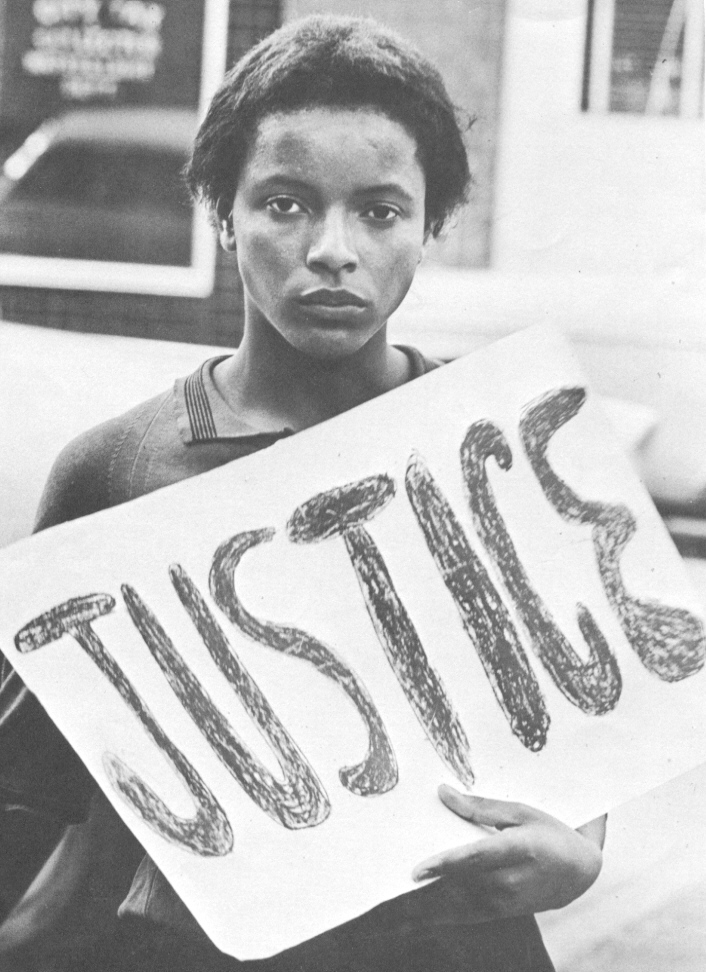One Person, One Vote — The Legacy of SNCC and the Fight for Voting Rights

Duke University and the SNCC (Student Nonviolent Coordinating Committee) Legacy Project have formed a partnership to chronicle the historic struggles for voting rights and to develop ongoing programs that contribute to a more civil and inclusive democracy in the 21st century.
Visit the website: One Person, One Vote: The Legacy of SNCC and the Fight for Voting Rights
SNCC
In the 1960s, young SNCC activists partnered with black southerners in a grassroots struggle for freedom. SNCC became the cutting edge of the direct-action civil rights movement, focusing on both political freedom and equal economic opportunity. Its full-time student workers, "field secretaries," worked with local black activists to generate new community organizations and to create a radically inclusive democracy that valued all of its citizens. As SNCC activist and SLP member, Charles Cobb explains:
At a deeper level than the immediate political concern with voter registration, SNCC’s work was also about cultivating new local leadership and reinforcing existing local leadership. SNCC field secretaries did not see themselves as community leaders but as community organizers, a distinction that empowered local participants by reinforcing the idea at the heart of SNCC’s work in every project that “local people” could and should take control of their own lives.
Today, SNCC’s legacy is defined by its commitment to grassroots organizing, local empowerment, and voting rights.
In a pilot initiative that is part of a longer-term collaboration, the SNCC Legacy Project, Duke's Center for Documentary Studies, and the Duke Libraries will create a new documentary website entitled One Person, One Vote: The Legacy of SNCC and the Fight for Voting Rights. This digital gateway will draw in documents, photographs, and audiovisual materials found at Duke and other SNCC-related collections in repositories across the country and use them to chronicle the historic struggles for voting rights that youth, converging with older community leaders, fought for and won. At the core of the project, SNCC organizers will come to Duke as Visiting Activist Scholars. They will work collaboratively with undergraduate and graduate students, faculty, archivists, and others to engage with SNCC's documentary legacy and contextualize grassroots struggles for voting rights. (Photograph: Genora Covington of Monroe, NC stands for justice, 1961, www.crmvet.org)
Pilot Phase: January 2014 – Spring 2015
The SLP-Duke partnership is planning a sustained initiative that will extend over four years and expand in scope to encompass a broad spectrum of themes and initiatives. The pilot phase of the project will conclude with the debut of the One Person, One Vote site in March of 2015.
Content of the pilot site
- Historic materials including documents, photographs, oral history interviews, audiovisual material, and music
- Profiles of people, organizations, and places central to SNCC's activism
- Articles, including testimonials and topical essays
- Timelines and Maps representing critical events and ideas in the struggle for one person, one vote
- Exhibits, such as multimedia slideshows or short documentaries that highlight important themes
- New works developed by Activists in Residence, such as critical oral histories and curated works about artifacts from the movement
Contributing Partners at Duke
Center for Documentary Studies; Department of African and African American Studies; Department of History; Department of Women's Studies; Duke Human Rights Center at the Franklin Humanities Institute; Duke Human Rights Center at the Kenan Institute for Ethics; Forum for Scholars and Publics; Humanities Writ Large Initiative (supported by the Andrew W. Mellon Foundation); John Hope Franklin Research Center for African and African American History and Culture; Office of the Provost; and Trinity College of Arts and Sciences.
For more information, contact us at onevotesncc@gmail.com or subscribe to the One Person, One Vote newsletter.
Visit One Person, One Vote: The Legacy of SNCC and the Fight for Voting Rights
